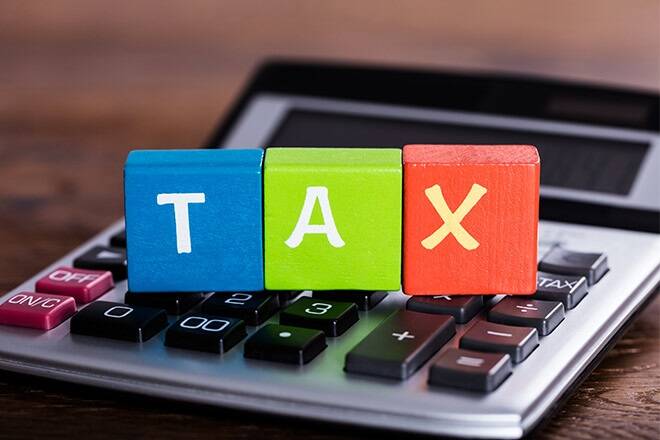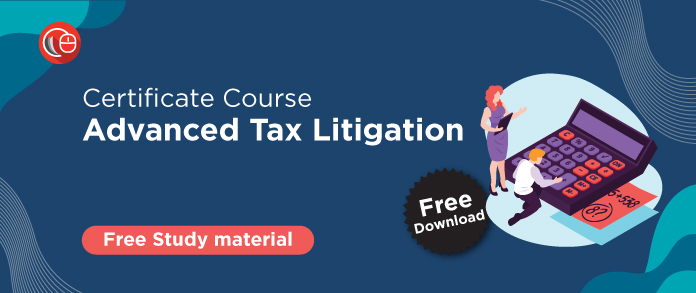This article is written by Abanti Bose, from Amity University Kolkata, India. This article sheds light on the necessary steps which are to be followed by the taxpayer while filing form 35 (CIT Appeal) online.
Table of Contents
Introduction
When the taxpayer is aggrieved by the order of the assessing officer, then he may file an appeal against the order of the assessing officer before the Commissioner of Income Tax (Appeals). The Commissioner of Income Tax is the first appellate authority and Section 246A of the Income Tax Act, 1961 specifies the orders against which an appeal can be filed before the Commissioner of Income Tax (Appeals). The steps regarding the procedure which is to be followed while filling form 35 are mentioned below in the article.
Time limit for filing the appeal
According to the provisions laid down in Section 249 A of the Income Tax Act, 1961 the appeal should be presented within 30 days under the following circumstances:
- When the appeal relates to any penalty or assessment or the date of service of notice of demand which relates to the assessment or penalty.
- Where the appeal is under Section 248 of The Income Tax Act, 1961 i.e., appeal made by a person denying liability to deduct tax under Section 195, the date of payment of tax.
- In any other case, the date on which intimation of the order sought to be appealed against is served.
Necessary documents which are to submitted along with the appeal
The relevant documents that are to submitted along with the appeal are:
- Form number 35 where the statements of facts and grounds of appeal are to be mentioned in duplicate.
- A certified copy of the order that has been appealed against.
- The original notice of demand.
- Copy of receipts of fees and the details of the receipts, i.e. BSR code, serial number, the amount that has been paid, date of payment of fee, etc. are important and required to be furnished in case of e-filing.
Major orders against which an appeal can be filed before the Commissioner of Income Tax (Appeals)
Mentioned below is the list of the major orders against which an appeal can be filed before the Commissioner of Income Tax (Appeals).
- The order passed against the taxpayer in an exceeding case where the taxpayer denies the liability to be assessed under the Income Tax Act, 1961.
- Assessment order passed under Section 143(3) except in cases where an order passed under the directions of the Dispute Resolution Panel.
- The assessment order has been passed under Section 144 of the Income Tax Act, 1961.
- Order of assessment, re-assessment, or re-computation passed after reopening the assessment under Section 147 of the Income Tax Act 1961, except an order passed in conducting of directions of the Dispute Resolution Panel.
- Intimation issued under Section 143(1)/(1B) where adjustments have been made in income offered to tax in the return of income.
- The intimation is issued under Section 200A(1) where adjustments are made in the filed statement.
- An order of assessment or reassessment passed under Section 153A or under Section 158 of the Income Tax Act, 1961 regarding the case of search/seizure.
- The order was made under Section 92CD(3) of the said act dealing with the aspect where a person has entered into an advance pricing agreement.
- The rectification order passed under Section 154 or under Section 155.
- The order passed by Joint Commissioner under Section 115 refusing approval to opt for a tonnage-tax scheme to qualifying shipping companies.
- The order passed under Section 163 treating the taxpayer as an agent of the non-resident.
- The order passed under Section 170(2)/(3) of the Income Tax Act, 1961 assessing the successor of the business in respect of income earned by the predecessor.
- The order passed under Section 171 of the mentioned act dealing with the recording and the finding of the partition of a Hindu undivided family.
Steps that are required to follow to file Form 35 (CIT Appeal) online
The Income Tax office on 1st March 2016 altered Rule 45 resulting in changes told on 30th December 2015 concerning the digitization of different capacities and making an electronic recording of appeal before the Commissioner of Income Tax (Appeals), compulsory for people who are required to document the arrival of income electronically and to eliminate human interference, decreasing administrative work, diminishing the expenses of the taxpayer, etc. The Existing Form 35 for filing of an appeal is replaced by another structure that is more organized, precise, and lined up with Income Tax Laws at present. For all online recorded appeals, the hearing of the appeals will be done electronically. The following steps are required to follow by the taxpayer in order to fill the file form 35 (CIT Appeal) online:
- Firstly, visit the site e-Filing Home Page, Income Tax Department, Government of India.
- Then, log in to the e-filing profile.
- Now we need to click on the “e-File” option and then select “prepare and submit the online form (other than ITR).
- After that select the form name as “35” from the drop-down box and click “Continue”.
- Now, it is important to read all the necessary instructions and then fill the form accordingly. After filling the form click on “submit” to submit the form online.
- After submitting the form, a screen will display only if the taxpayer has a digital signature certificate (DSC) registered in the profile.
- Next, attach the signature file which has been generated using the digital signature certificate Management Utility and then click “submit”.
- But, if the taxpayer does not have a digital signature certificate in the profile then another screen will be displayed. In that case, the taxpayer can choose any of the suitable options.
- If the taxpayer has a pre-generated electronic verification code (EVC) then he needs to click on “option 1- I already have an EVC to e-verify the form”. And this will lead to the display of the following pop-up box.
- The taxpayer needs to enter the pre-generated EVC (in this case all types of EVC are accepted except e-filing OTP) and then click on “submit”. The form will get submitted and the taxpayer will be redirected to the success screen.
- But if the taxpayer does not have a pre-generated electronic verification code then the taxpayer needs to choose “option 2- I do not have an EVC and I would like to generate an EVC to e-verify my form”, then a pop-up box will provide the taxpayer with two options, i.e. firstly, EVC- through net-banking and secondly, EVC through the bank account number. In this case, the taxpayer needs to choose the option which is appropriate for him.
- For the option “EVC through bank account number” the taxpayer needs to pre-validate the bank account details. And if the taxpayer has not prevalidated the bank account details then he needs to follow the following steps to pre-validate the bank account details.
- Open, profile settings, and click on the option “pre-validate your bank account”.
- Then the taxpayer needs to follow the given instructions to pre-validate the bank account.
- Now after the completion of the above process the EVC will be generated and then it will be sent to the verified email id and mobile number. Upon receiving the EVC the taxpayer is required to enter the EVC number in the pop-up which will be displayed below.
- After entering the EVC number the taxpayer needs to click “submit”. The form gets submitted and the taxpayer is redirected to the success screen.
- If the taxpayer clicks on “option 3- I would like to generate Aadhaar OTP to e-verify the form” then a pop-up will be displayed on the screen where the taxpayer needs to enter the aadhaar OTP in order to e-verify the form.
- After submitting the aadhaar OTP the form will get submitted and the taxpayer will be redirected to the following screen.
- If the aadhaar PAN is not linked then another screen will reappear.
- On that screen, the taxpayer will be provided with the necessary details to link the PAN card with the aadhaar card.
- After linking the PAN card with the aadhaar card the taxpayer needs to fill the details in order to submit the form.
- Upon the successful submission of the form, transaction id will be generated and the confirmation mail will be sent to the registered email id of the taxpayer.
Fees of the appeal
The fess which is laid down for filing an appeal before the Commissioner of Income Tax (Appeals) are mentioned as:
- The stipulated fees are Rs. 250 when the assessed income (i.e. total income as determined by the Assessing Officer) is less than or equal to Rs. 1,00,000 (as amended by Finance Act, 2020).
- The stipulated fees Rs. 500 when the assessed income (i.e. total income as determined by the Assessing Officer) is more than Rs. 1,00,000 but less than Rs. 2,00,000.
- The stipulated fees are Rs. 1,000 when the assessed income (i.e. total income as determined by the Assessing Officer) is more than Rs. 2,00,000.
- If the subject matter of the appeal relates to any other aspect other than the above-mentioned provisions then the fees that will be charged is Rs. 250.
Filing of additional evidence
While filing for appeal before the Commissioner of Income Tax (Appeals), the taxpayer is required to provide those evidence, whether oral or documentary, which were produced before the Assessing Officer. The taxpayer is not authorized to produce any additional pieces of evidence before the Commissioner of Income Tax (Appeals) that was not produced before the Assessing Officer. However, only the following evidence will be accepted by the Commissioner of Income Tax (Appeals):
- When the Assessing Officer has refused to admit evidence that was required to be admitted.
- When the appellant was prevented by reasonable cause to produce evidence which he was called upon and was required to be produced before the Assessing Officer.
- When the appellant was prevented by reasonable cause from producing evidence before the Assessing Officer and that evidence was relevant to any ground of appeal.
- When the Assessing Officer has made the request offered against without giving adequate chance to the litigant to show proof applicable to any ground of appeal.
Decisions of the Commissioner of Income Tax (Appeals)
After hearing the cases which have been brought before the Commissioner of Income Tax (Appeals), he will be passing the order. The order must be in writing. The order will be passed for disposal of the appeal, and it will also mention the decision on each ground of appeal along with reasons. If there should arise an occurrence of intrigue against the appraisal request the Commissioner of Income Tax (Appeals) may affirm, decrease, improve or invalidate the appraisal (counting evaluation regarding which procedures before the Settlement Commission abates). In the event of intrigue against the punishment request, the Commissioner of Income-tax (Appeals) may affirm, diminish, or improve the punishment. Before enhancing any evaluation or punishment, the Commissioner of Income-tax (Appeals) needs to give a sensible chance to the taxpayer to introduce his argument against such enhancement.
Conclusion
The entire appeal process depends upon the facts and circumstances of the case which vary concerning each assessee. The assessee must review the grounds of appeal in the most suitable manner possible before filing for the appeal. The article has mentioned all the procedures that are necessary to be followed in case of filing form 35 CIT (Appeal) online. These relevant steps would easily facilitate the taxpayer while he is going through the hassle of filing the form online. Apart from laying down the steps, this article also states all the relevant information to the taxpayer about the entire appeal process.
References
- https://taxguru.in/income-tax/file-appeal-before-cit-appeal-procedure-faqs.html
- https://www.incometaxindia.gov.in/tutorials/34-%20appeal%20to%20cit.pdf
- https://www.incometaxindiaefiling.gov.in/home
- https://www.incometaxindia.gov.in/pages/acts/income-tax-act.aspx
- http://www.casahuja.com/2016/03/new-mandatory-e-filing-of-first-appeal.html
LawSikho has created a telegram group for exchanging legal knowledge, referrals and various opportunities. You can click on this link and join:
 Serato DJ Crack 2025Serato DJ PRO Crack
Serato DJ Crack 2025Serato DJ PRO Crack











 Allow notifications
Allow notifications


